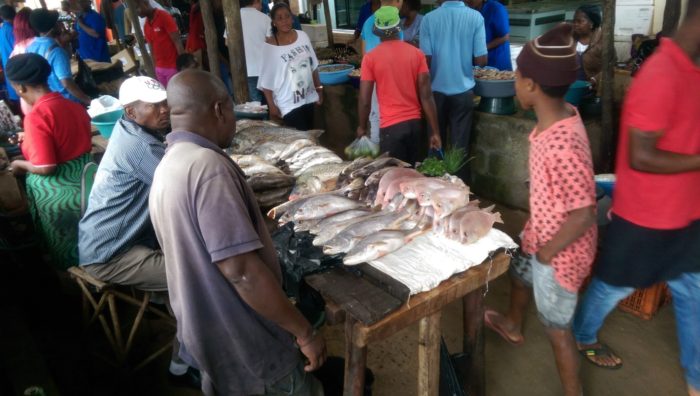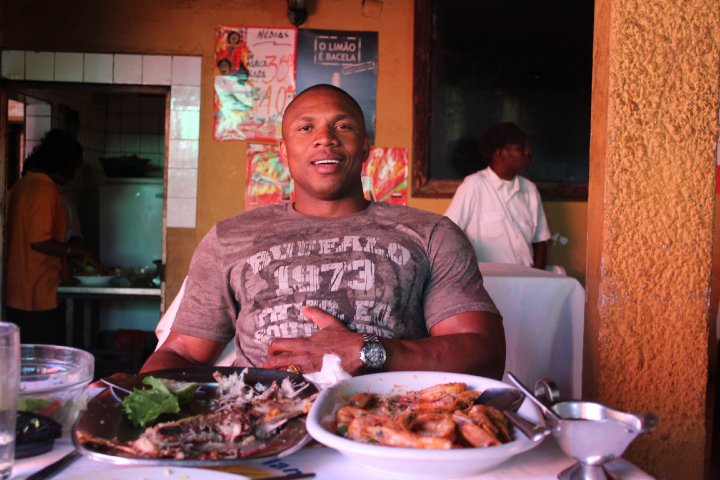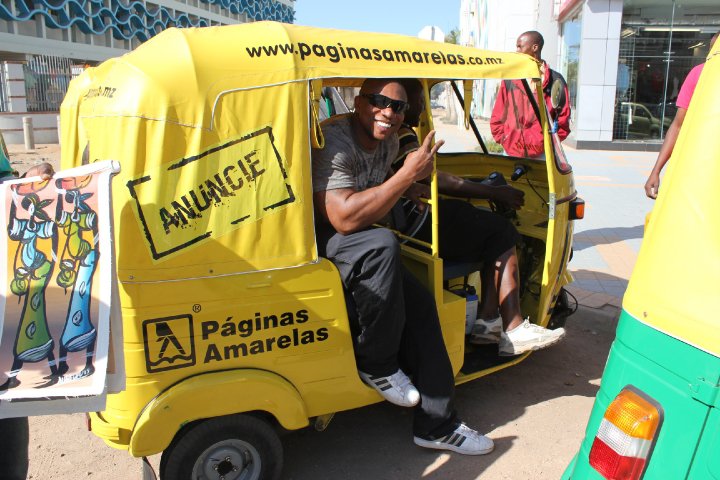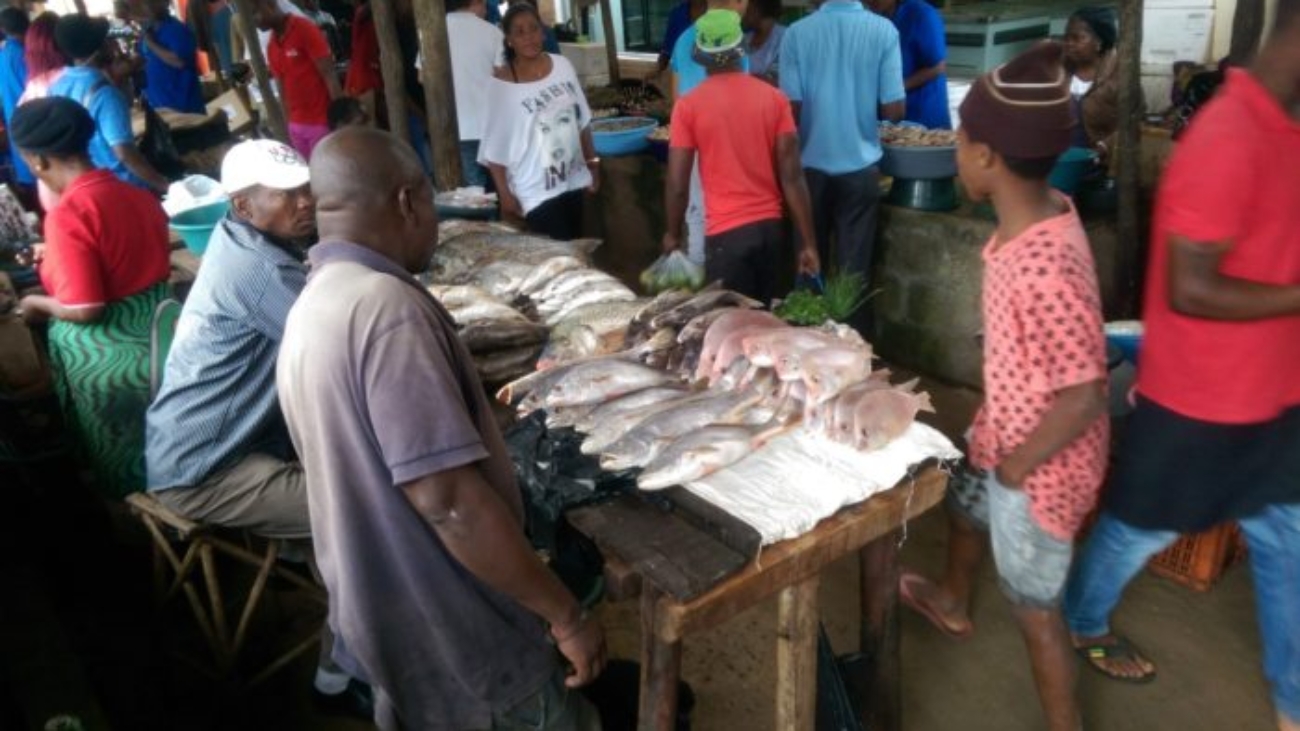
If you are a seafood lover, then Mozambique is the perfect place for you. Mozambique is located on the south-eastern coasts of Southern Africa with six different African neighbors. Bordered to the south with South Africa and Swaziland, Zimbabwe, Zambia, and Malawi to the west, and Tanzania to the north. A six- hour drive from Johannesburg, South Africa and I was ready to explore this beautiful country.
Economics
The 2015 Human Development Index ranked Mozambique’s economic development at the bottom, 180 of 188 countries with an adult literacy rate of 56% and the life expectancy at birth of 50.3 years. Despite being one of the poorest countries economically, Mozambique is rich in culture and the people are special. Mozambicans are warm and friendly; I felt welcomed during both my visits. Poverty is widespread as the majority of the population works the land, many earning significantly less than the official minimum wage of around $100 per month. In some places such as Palma in the north, the locals live on less than $1 a day.
Religion and Language
The population in Mozambique is mostly Muslim, and the official language is Portuguese. English is spoken mostly in Maputo and other tourist areas. Additionally, there are 13 indigenous languages with local dialects spoken in Mozambique. Swahili is spoken in the north.
Culture
Mozambique is divided among approximately sixty different ethnic groups. The largest group is the Makua-Lomwe in the north, who account for about half the population. Located further north are the Makonde near the coast and the Yao near Lake Niassa. Southern tribes include the Tsonga, Karanga, Chopi, Shona, and Nguni. About three percent of the population is European, Indian, Chinese, Pakistani, or African/European. These people are concentrated in the coastal cities and usually work as doctors, teachers, shopkeepers, or industrial laborers. Despite the differences, these groups remain closely linked with the traditional African religions, the cult of the ancestors, the practice of witchcraft, and the celebration of initiation rites, marking the passage from childhood into adult life (for males and females).
Maputo
Maputo is the capital of Mozambique and is the southern hippest city and a popular tourist destination. An estimated 1.5 million people reside in Maputo. The growth in Maputo has been remarkable – an estimated 10 thousand expatriates live and work in this amazing city. I visited Maputo twice, the first time in 2010 and the second in 2015. During these five years, lots of money has been spent on improving the infrastructure, and now, tourism in Maputo is at an all time high.There has been an explosion of hotels, bars, coffee shops, restaurants, and clubs. Maputo is now one of the fastest developing cities in southern Africa. However, like most major cities around the world, poverty, unemployment, and street crime are also on the rise; therefore, I remained vigilant at all times.
Where to Stay in Maputo
I stayed at the Southern Sun Maputo hotel which was a bit pricey, but it was safe, clean, and in a great location. There are plenty of places to stay in Maputo based on one’s budget. For example, on one hand you can stay in the Presidential Suite at the Polana Serena and spend a fortune or you can stay in a cheap backpacker hotel.
Here are my top recommendations:
Southern Sun Maputo – I stayed there twice and had great experiences. Palm trees, infinity pools, beautiful sunrises, and a great location. Very clean and safe so I highly recommend this hotel. Polana Serena – A bit on the high for the ritzy with perhaps the best views of the ocean. This hotel was built in 1922 and was once considered one of Africa’s finest hotels. Very popular with presidents, business travelers, and celebrities and boast an amazing Spa, long swimming pool, and a Jacuzzis. Radisson Blu –Very modern 5 star hotel in Maputo. Elegant Scandinavian décor with epic views across the bay. One of the better choices in Maputo.
Food
Mozambique is the fish and seafood capital of the world. I highly recommend that you visit the local Mercado de peixe (fish market) in Maputo but ask for my friend Gasper. Choose from giant size prawns, crabs, clams, dorado, squid, butterfish, cod, or anything seafood. You pick what you want to eat, and a local chef will cook it for you.

My favorite is a platter of prawns served with lemon juice, garlic, peri peri, white wine and steaming Portugese bread. Try the Peri Peri chicken which is popular among Mozambican. This famous Mozambican dish is available everywhere in Maputo.For finer dining, here are my recommendations: Bayview – Located in the Southern Sun hotel, has a great menu with a mixture of Chinese, Italian, and other international dishes. The seafood at this restaurant is one of the best I ever had. Try the Matata which is a spin of traditional shrimp and peanut stew with crushed coconut, shopped pepper, and spinach. Fiamma – Located in Hotel Cardoso, the second-oldest hotel in the city, offers seasonal food with a taste of Mediterranean, Asia, and the East. Bel Piatto – Italian style dinning with fresh salads, home-made pasta, steaks, and fine wine.
How to get around Maputo
I found that the best way to get around Maputo is a combination of walking, Taxis, and Tuk-tuks. You can also take a tourist hop-on-hop-off bus to explore the city. Remember to get a map from the hotel and have your passport with you at all times.

Money
The local currency is the New Metical (MZN), or Meticais. The exchange rate about Meticais to 1 American Dollar. Most places will accept credit cards but always carry cash with you especially outside of the city.
Things to do in Maputo
Historic stroll and garden lunch – Exploring the historic city, Independence Square, the French-Mozambican cultural center and Jardim Tunduru. Waterfront wander – Start at the CFM railway station and then head towards the Fortaleza, the place where the Portuguese first built this fort in the 15th century. Island-style seafood adventure – Take the ferry to the Bay of Catembe and lunch at the Catembe Gallery Hotel. Great views and amazing food.
Other Useful Information
Population: approx. 28 million (2015) GDP: $14.69 billion (2015) Climate: Mozambique has two seasons, wet and dry. The wet season is from October to March and the dry season from April to September. Religion: Estimated 56.1% of the population of Mozambique are Christian, 17.9% are Muslim, 18.7% has no religion and 7.3% adhere to other beliefs. Capital: Maputo is the Capital City of Mozambique (previously known as Lourenco Marques before independence). Language: Portuguese is the official language of Mozambique and is the most widely spoken: 39.6% of the national population and 72.4% of people living in urban areas are fluent in the language. Other widely spoken languages include Swahili, Makhuwa, Sena, Ndau, and Shangaan (Tsonga). There are also regional languages.

